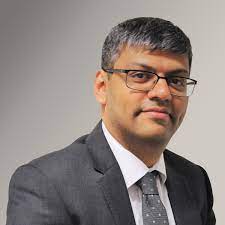HealthCert Education
Prostate cancer
Prostate cancer
Expand your expertise in diagnosing and managing prostate cancer with this comprehensive course designed for healthcare professionals. Covering essential topics such as PSA testing, localised and metastatic cancer treatment, and post-treatment care, this course offers evidence-based strategies and insights into the latest advancements. Learn to assess risks, navigate treatment options, and support patient quality of life through interactive learning and case-based discussions. Ideal for practitioners aiming to enhance their clinical decision-making, this course equips you with the tools to optimise care for patients facing this common and complex condition.
 3.5 hrs EA | 6.0 hrs RP | 0.0 hrs OM
3.5 hrs EA | 6.0 hrs RP | 0.0 hrs OM
Couldn't load pickup availability
SKU:SHOP-S2MEN
View full details
-

FLEXIBLE TIMING
-

100% ONLINE
-

accredited Course
-

Expert instructor
This Prostate Cancer course provides a detailed exploration of the diagnostic, treatment, and management processes for one of the most prevalent cancers affecting men. Delivered in three units, the course is designed to empower healthcare professionals with actionable knowledge to improve patient outcomes.
Unit 1: Diagnosis, PSA, and Overview
Learn the fundamentals of diagnosing prostate cancer, focusing on the role of PSA testing and digital rectal examinations. This unit covers the benefits and limitations of PSA screening, including false positives and the challenges of over-diagnosis. It explores the Gleason scoring system, risk stratification, and referral criteria to specialists. Practical guidance is offered for recognising patients at higher risk, including those with a family history or BRCA gene mutations, ensuring timely and accurate diagnoses.
Unit 2: Localised Prostate Cancer
This unit examines treatment modalities for localized prostate cancer, including surgery, radiotherapy, and active surveillance. Key topics include:
- Radical Prostatectomy: Techniques, risks, and the evolving role of robotic-assisted procedures.
- Radiotherapy: Applications of brachytherapy and external beam radiotherapy, with a focus on minimising biochemical recurrence.
- Active Surveillance: Criteria for monitoring low-risk patients to avoid over-treatment.
- Neoadjuvant and Adjuvant Therapies: Guidelines for androgen deprivation therapy (ADT) and its role in high-risk cases. Through case studies, participants will learn to balance treatment efficacy with patient quality of life.
Unit 3: Metastatic Prostate Cancer
Explore the complexities of managing advanced and metastatic prostate cancer. This unit covers:
- Androgen Deprivation Therapy (ADT): Medical and surgical options, resistance mechanisms, and optimising treatment protocols.
- Castration-Resistant Prostate Cancer: Emerging therapies, including chemotherapy, targeted agents like abiraterone and enzalutamide, and immunotherapies.
- Bone Health and Supportive Care: Strategies for managing skeletal-related events and preserving bone density with agents such as zoledronic acid and denosumab.
- Rare Subtypes: Guidance on treating aggressive forms like small-cell neuroendocrine cancers. Participants will also gain insights into the psychological and cardiovascular impacts of treatment, ensuring holistic patient care.
This course equips healthcare professionals with the skills and knowledge to navigate the challenges of prostate cancer care. By addressing both medical and supportive aspects, it aims to enhance patient outcomes and quality of life.
- Plan the diagnosis of prostate cancer.
- Plan the management of prostate cancer, including metastatic spread and complications of prostate surgery.
- Judge when to refer patients to a specialist, what to include in the referral, and how to manage subsequent patient care.
All degree qualified medical practitioners.
CPD Hours:
- Education hours: 3.5
- Reviewing performance hours: 6.0
- Measuring outcome hours: 0.0
Accreditations:
Royal Australian College of General Practice (RACGP) #477117
Australian College of Rural and Remote Medicine (ACRRM) #31218
Study Mode:
100% online
Study duration:
9.5 hrs self-paced

ABOUT THE PRESENTER
Dr Divyanshu Dua
This course is presented by Dr Divyanshu Dua.
Dr Dua has worked as a Consultant Medical Oncologist at the Canberra Region Cancer Services since July 2016. He previously worked as a Staff Specialist in Medical Oncology in rural Victoria.
Dr Dua’s experience and training in medicine and oncology spans across three continents including Asia, Europe and Australia. He specialises in lung cancers, thoracic malignancies, and genitourinary malignancies.After completing most of his physician training in Adelaide, Dr Dua completed a clinical fellowship at The Guys Hospital in London in drug development, early phase clinical trials, and thoracic malignancies.

